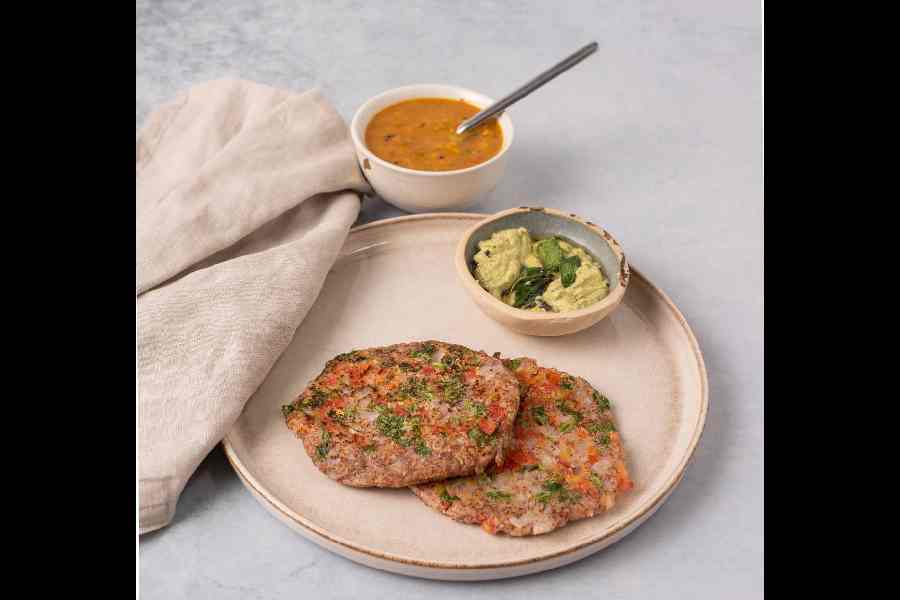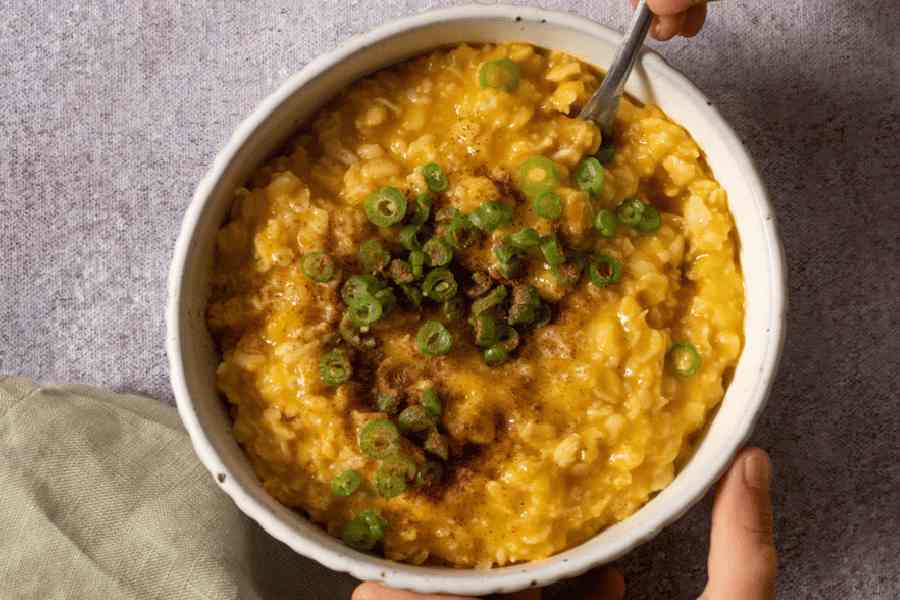Proper nutrition is of utmost importance during the early years of life as it lays the foundation for a child’s growth, development, and overall health. Children between the ages of two and 10 undergo significant physical and cognitive changes, making it crucial to provide them with balanced and nutrient-rich diets. This article delves into the daily nutritional needs of children in this age group, emphasising the significance of essential nutrients such as iron, calcium, carbohydrates, fats, proteins, vitamins, and minerals, while also highlighting optimal food choices.
Calorie requirements for two-to-four-year-olds are 1,060kcal and for five to nine years 1,350kcal to 1,500kcal per day. In order to fulfil these, parents need to offer children carbohydrate- and fat-rich food. At a young age, protein requirements are fulfilled by poultry, dairy, legumes and nuts in the diet. However, the lack of sufficient energy-rich foods can sometimes make children lethargic.
A daily intake of four portions of fruits and vegetables, four portions of proteins, and six portions of cereals would be considered sufficient. The portion size for toddlers would be one tablespoon each and for an average nine-year-old could be 50-75g (3 oz).
Superfoods can fortify all the essential nutrients in the daily meal plans. Meals need to be age-appropriate, simple, yet visually appealing. The first conundrum is to comprehend the nutritional challenges that may be faced and minimum daily requirements.
Red Rice Uttapam

Serves 2
Ingredients
1 cup red rice , uncooked
½ cup black gram lentils, urad dal
1 tsp fenugreek seeds
1 onion , finely chopped
1 tomato , finely chopped
2 tbsp coriander leaves, finely chopped
1 tbsp oil
Salt to taste
Method
In a large bowl , soak the red rice in water , the rice should be completely submerged in water. Let it soak for 5 to 6 hours In a separate bowl , soak the urad dal & the fenugreek seeds for 5 to 6 hours
Grind the urad dal & fenugreek seeds into a smooth batter , while grinding add just enough water to make into a smooth batter Grind the red rice also into a smooth batter , add the red rice in batches
Combine both the batters , add salt & set aside overnight for the batter to ferment In the morning , mix the batter well.
Preheat a nonstick tawa & grease it. Pour a ladleful of the batter on the tawa , spread the batter & then add the chopped onions, tomatoes & the coriander
Once done , flip the uttapam & cook on the other side until done
Proceed the same way to make the rest of the uttapam with the remaining batter
Serve with coconut chutney & tomatoes
Calcium & magnesium combo in red rice makes it bioavailable for your child’s bone development
Essential Nutrient Groups and Their Importance
Carbohydrates serve as the primary energy source for growing children. Opt for complex carbohydrates like whole grains, fruits and millets, which release energy steadily and support sustained activity levels. The absence of carbohydrates results in low dietary fibre intake, unhealthy digestion and constipation. A portion of red rice uttappam for breakfast, fruits in snack, two millet rotis for lunch, and quinoa porridge at dinner would be a balanced reflection of carbohydrates in a child’s daily diet.
Proteins are essential for growth, tissue repair, and immune function. Lean protein sources like poultry, fish, beans, legumes, and low-fat dairy products and nuts should be included in daily meals. These options provide vital amino acids necessary for building and repairing tissues.
Protein intake of 1.3g/kg is recommended in a child under four years of age, who may weigh between 14kg and 17kg; simply two portions of dairy and one portion of legume will suffice. However, for a nine-year-old weighing 30kg, the daily requirement of 43g may be a challenge. Dal, chhena sandesh, egg sandwich and a nut laddu will be a good combination to meet the daily needs. Soy proteins are an easy substitute for lactose-intolerant vegetarian children.
Healthy fats are crucial for brain development, hormone production and overall cell function. Incorporate sources like avocados, nuts, seeds and fatty fish (rich in omega-3 fatty acids) into your child’s diet. Limit saturated and trans fats found in fried foods and processed snacks. Visible fats from ghee, olive oil and vegetable oils can be up to five teaspoons daily, but invisible fats through dairy, yolk, nuts and avocado may be in addition to that. We obtain 9kcal energy per gram of fat consumed. This is an important nutrient to include as it ensures vitality in children.
Vitamins and Minerals
Calcium is vital for bone and teeth development and a child needs 550mg a day. Dairy products like milk, yoghurt and paneer are excellent sources of calcium. For lactose-intolerant children, fortified plant-based alternatives or calcium-fortified foods can be considered. Sesame seeds, almonds and amaranth are great sources. A glass of soy milk, a date-almond-sesame laddu and two amaranth rotis would be adequate to meet daily requirements.
Vitamin D is a hormone our body produces when exposed to sunlight. It is essential for calcium absorption, good bone health and maintaining basic energy levels. Animal food sources like fortified dairy products, fatty fish, and egg yolks can provide adequate vitamin D. In regions with limited sunlight, supplements are recommended. As a vegetarian who may not be playing outdoors, the child will have to consider a daily supplement.
Iron is crucial for oxygen transport in the blood and cognitive development. Lean meats, poultry, fish, fortified cereals, beans, and dark leafy greens are iron-rich foods. Our favourites would be raisins in your protein laddus and spinach in dal and daily rotis. Children on average need 0.2-0.5 g/kg/day. A seven-year-old weighing 24kg would have to consume an apple, half a beetroot, a bowl of dal, some raisins, and spinach soup daily to have the correct iron levels. Indian meals sometimes include calcium-rich foods such as curd or paneer alongside a legume. If the portion of dairy is significant in the meal, it will inhibit iron absorption from the legume.
A drop of lemon in dal enhances the absorption of iron from the lentil. Vitamin C and iron are an ideal food combination. This vitamin aids in wound healing and boosts the immune system. Papaya, guava, citrus fruits, strawberries, bell peppers and broccoli are rich in vitamin C. Amla is the only fruit which retains the vitamin inspite of being cut and exposed to sunlight while a lemon loses the vitamin within minutes of exposure.
Vitamin A supports vision, immune function, and skin health. Orange and dark green vegetables, as well as fruits, are excellent sources. We know the parental challenges of screen time use and the health issues it has created. A simple sweet potato dish whether as mashed potatoes or chaat will ensure the daily RDA of 400ug is met. Carrots, spinach and mangoes are also good sources.
B vitamins, including B6, B12, and folate, are essential for metabolism, nerve function, and red blood cell production. Whole grains such as quinoa, lean meats, dairy products, and poultry are ideal sources. Folate through broccoli and sweet potatoes are a delightful daily addition.
The superfood meal plan for growing children
See table. Our recommendations for daily superfoods are spinach, sweet potato, pumpkin seeds, almonds, legumes, sattu, millets, quinoa, raisins, and apples. These 10 represent a genus of food groups that are essential building blocks for all nutrient RDA of children. Each of these superfoods is rich in more than one of the abovementioned essential nutrients.
Ensuring that children aged two to 10 receive proper nutrition is a fundamental responsibility that significantly impacts their growth, development, and future well-being. By focusing on nutrient-rich foods from various food groups, parents and caregivers can provide the essential vitamins, minerals, and nutrients necessary for children’s overall health. A balanced diet not only aids physical growth but also supports cognitive development, immune function, and a strong foundation for a healthy adulthood.
Abhilasha Sethia is an F&B consultant and chef who has just published her cookbook for growing children, A SuperFood A Day. Her coauthor, Vidhi Beri, is a health transformation coach with a decade of experience in maternal and child nutrition and wellness. A Superfood A Day is their offering to children and families for fresh and flavourful wellness. The book is available on amazon.in






